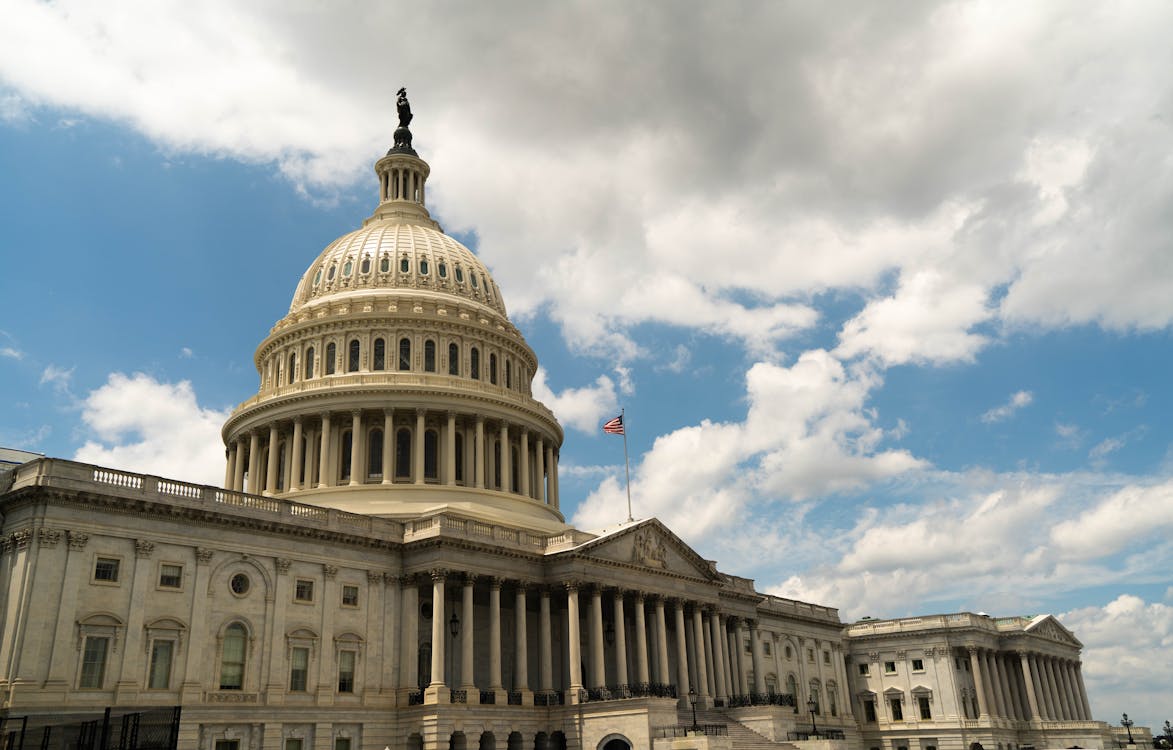With the U.S. government mobilizing its heavy network of contractors to boost the nation’s recovery rate from the effects of the COVID-19 pandemic, the government contracting industry is enjoying an upward trend now more than ever.
The federal government allocated most of the $682 billion budget to critical industries such as health care and medical, construction, defense, and IT. But, those government contracting behemoths aren’t the only ones who can play the game—small businesses like you can join the fray, too! And you can begin by learning how to write a winning government contract proposal in just ten steps.

Table of Contents
How does the government solicit government contract proposals?
Before writing down your winning proposal for government contracts, you should first learn how federal agencies solicit proposals. Having an idea of different government proposal solicitations will help you win more contracts in the future.
• Request for Quote (RFQ) or Request for Information (RFI):
Federal government agencies issues these solicitation requests to gather information, such as the contractors’ price quotes for their specific services.
• Invitation for Bid (IFB):
The IFB is a sealed bid that a federal government department doles out to government contractors deemed qualified to deliver their specific requirements. The proposed prices are a deciding factor in this type of bid, and most of the time, the government awards the contract to the lowest bidder.
• Request for Proposal (RFP):
When the government has no specified requirements yet and is still looking for the best solution to solve their problems, they publish a Request for Proposal on the necessary platforms. Several factors are considered when selecting a government contractor with this method. That is why writing a creative, concise, and clear proposal will help you win more contracts.

How do you write a government proposal?
Step 1: Ensure that you have registered your company in all federal government contracting procurement databases.

The first step of the government proposal writing process is ensuring that your company gets the exposure it needs. For example, making your company visible at SBA’s Dynamic Small Business Search will increase your business’s presence to potential federal agencies.
To know more about how you can navigate the registration process on being a government contractor, check out this beginner’s guide here.
Step 2: Conduct market research.

As with other business ventures, getting to know your target government agencies and competition will paint you a picture of your current standing in the field. Research about your competing contractors’ strengths and weaknesses and use them to your advantage to put your business in front.
Referencing back to our second step, you can also use those databases as a platform to look up your competitors’ current government contracts and search for your target agencies’ demand trends.
Step 3: Don’t just submit bids for government contracts randomly.

Submitting a government proposal isn’t like a lottery where the more entries you send, the more chances of winning you’ll have. You should remember that submitting a contract proposal means that you are saying that your company is dedicated and fully capable of delivering the federal agency’s specific request.
If you decide to send proposals to every RFP you see despite knowing that your business is in no way qualified, you will hurt your business’s track record and waste precious resources. So before you send out a contract proposal, ask yourself these following questions first: is my company’s capabilities enough to deliver the contract requirements? Does my company have the needed resources to fulfill this contract?
Step 4: Understand that government proposal writing is about being thorough. Check the RFP document with a fine-tooth comb.

The third step of the process requires you to be as detail-oriented as possible.
The RFP document provided by a federal department is usually a hundred-page (or less) document, so having another set of expert eyes to look at the document with you will tremendously help you in this writing process.
Everything written on the RFP document is essential, but you have to pay greater attention to sections C, L, and M.
Section C or Scope of Work describes the work needed by the government department. Section L or Instructions, Conditions, And Notices To Offerors enumerates the agency’s specific instructions on formatting your bid proposal, how the contractor shall fulfill their request, and the other applicable conditions applicable to this contract. And lastly, Section M or Evaluation Criteria indicates the factors the federal agency will consider in assessing your proposal.
Try to fully understand the information stated in those sections before you write your proposal. By doing so, you prepare your company not just to comply but to win.
Step 5: Stick to the instructions stated in the RFP.

Federal departments are very particular in their requirements, so it pays to be detail-oriented in this tradeline. Take note of the agency’s instructions indicated in Section L of their RFP document, from the proposal’s margin and font size and style to the point person to send your document to. You have to be thorough in following their instructions to the dot unless you want your proposal to be eliminated from their pool of potential contractors due to technicalities.
This step can be overwhelming, so try to develop a pre-writing process that works best for you. You can create a list of the crucial instructions and put it up to where you can see, or form a proposal team to help you out.
Step 6: Create a capability statement.

Now that you have nailed down the foundation of your contract proposal from the previous steps, it is now time to actually write it! So first things first, develop your company’s capability statement.
Your capability statement is an essential piece of your proposal. This will highlight who your company is, your strengths, and the benefits of choosing you to from other players. But don’t just list it out, though. Try to cater it to your target agency’s needs.
Furthermore, you should remember to keep this section creatively brief. Anything more than a page may be too much and will get your proposal tossed into a pile.
Additionally, this capability statement is not limited to one-time use. In fact, you can further refine it to use it in your future proposals and even integrate it with your marketing materials.
Step 7: Address the project goals.

When a federal agency sends out a Request For Proposals, they want the government contractors to propose a detailed solution on how they plan to address the agency’s needs.
So coming from the detailed knowledge you got from step 3, you should now clearly describe how your company plans to achieve each of the contract’s goals that leverage your company’s expertise.
Step 8: Price your services competitively.

Many companies are vying to win government contracts just like you. So to thrive in an open trade industry such as this, you have to be competitive in your pricing. You have to set a comfortable price that is enough to cover your operational costs and target profits to maintain your service quality.
To do that, review your market data gathered earlier to give you an idea of how your competitors are charging for similar goods. And from there, try to find the optimal pricing range that will satisfy your target profits and remain competitive in the market.
Step 9: Review your document thoroughly before submitting it.

Typos? Misspellings? Misunderstood instruction? These are only some of the easily overlooked mistakes that may cost you your next contract win. To avoid this, bring in a fresh set of eyes to review your proposal before sending it to the appointed officials.
Step 10: Wait for a response.

It usually takes 30-120 days (or more, depending on the project’s complexity) for the federal agency to respond to your bid. During this period, you have to be on your toes and be prepared to respond promptly and professionally to their queries and other clarifications.

What to do if your proposal bid is rejected?
In the unfortunate event that your proposal has been rejected, remember to be polite and thank them for the opportunity, then ask for a debriefing.
During the debriefing, you will have the chance to talk with the federal agency representative and gather their feedback about their proposal so you will do better in the next RFPs. This effort will show that you are genuinely interested in going into business with them and become more trustworthy in their eyes.
Take a step back, plan the next step of your journey, seek support from peers and experts, and never give up.

How does the government evaluate bids?
Depending on the government contract requirements, the government looks at different factors that will help them rightfully assess the contract proposals sent to them. But in general, here are some of the things the government takes into serious consideration when evaluating project proposals:
• Key Personnel:
For validation purposes, the federal agency will look at your company’s key personnel, especially those they will have to deal with during your contract period.
The government will check whether your enlisted staff has vast experience in delivering their specific request, how well your staff communicates with the team, and more.
• Organizational Structure and Management Approach:
Before the government decides to award contracts, they have to gauge how well the business structure operates as a whole. This means that they will look at how your company’s line of authority and personnel will seamlessly perform the services needed as stipulated in the contract.
• Technical Management Approach:
Compared to the previous criterion, this approach will closely look at the technical capability of your business to operate and manage the project. This will also help the awarding department see how well you execute your services and, therefore, your future performance in the project.
• Relevant Experience:
The federal department will also consider any related experience and how well your business has previously fulfilled requirements similar to the contract you are bidding for.
• Transition Plan:
If you are bidding for a contract previously held by another contractor, the government department will look at how you plan to transition into your duties smoothly. Going the extra mile by giving them a transition plan that is comprehensive, efficient, effective will give you a massive bonus under this criterion.
• Cost and Fee:
And of course, the federal department will assess whether your proposed cost for the project is justified, feasible, and favorable to all parties involved.





